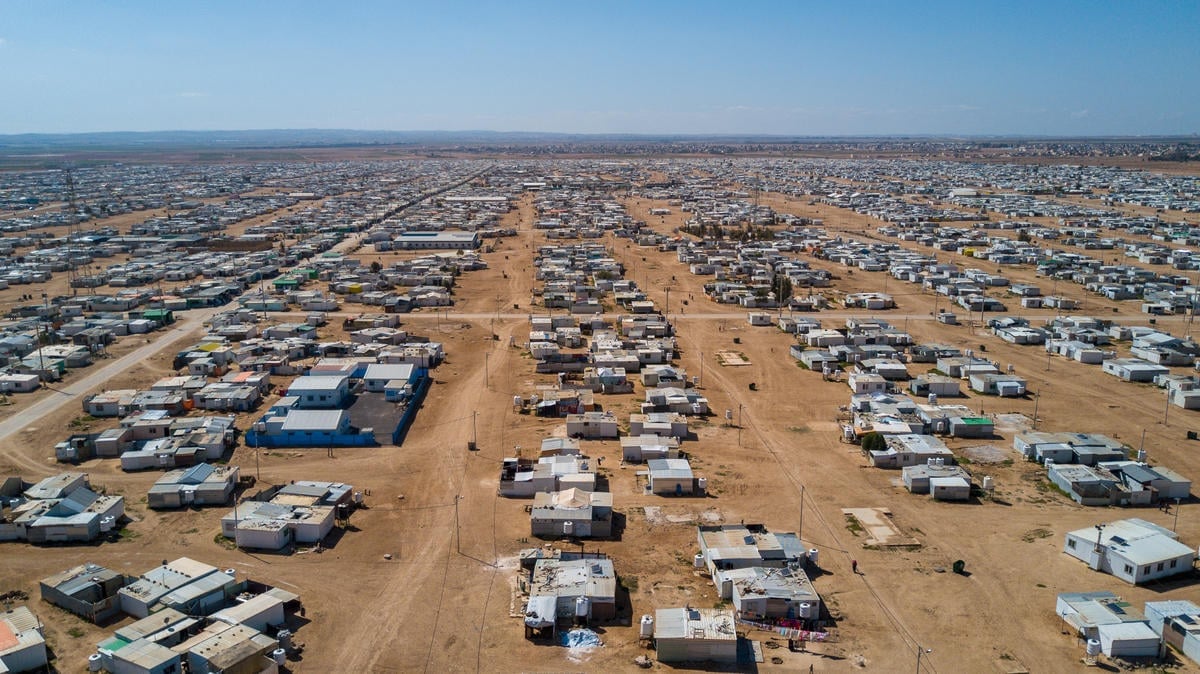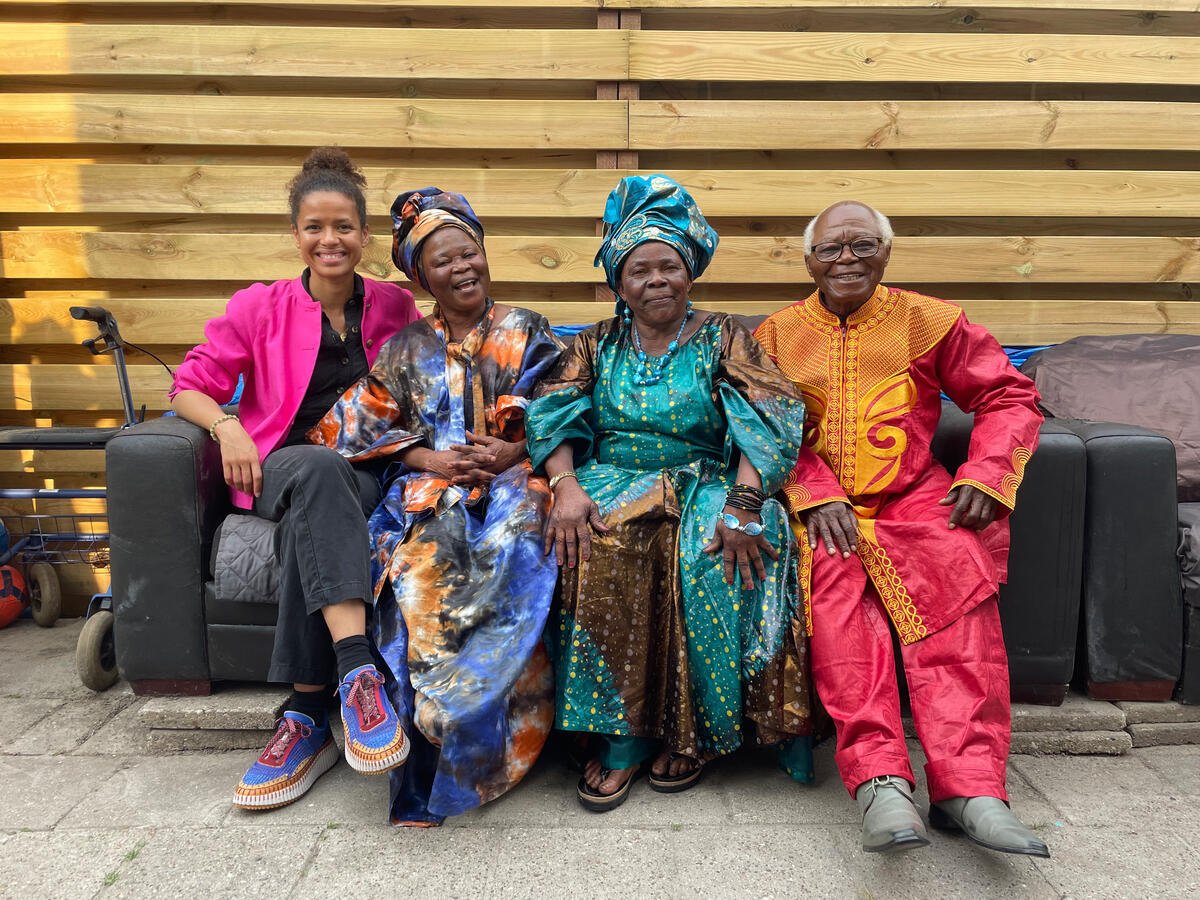Congolese family sets sights on a fresh start in Norway

Congolese family sets sights on a fresh start in Norway
One of the things that Jean* and his wife Maria* will miss about Uganda is the fresh, unpolluted air in the beautiful countryside of Kisowera, in Mukono district, where they lived with their seven children after fleeing violence in the Democratic Republic of the Congo (DRC).
They are eager to move on with their lives as they relocate to Norway, leaving behind memories of the trauma they experienced while living in Masisi, in the DRC’s North Kivu province.
“I can never go back. Just thinking about home traumatises me,” said Jean firmly.
The 54-year-old father of seven worked as a mason until 2006 when his life was turned upside down.
Armed militia groups attacked his village, beat up people and set homes ablaze, trapping people inside to die. Those who could escape ran into the forest but sadly, the elderly, like Jean’ parents, were killed in the fires.
Jean ran with the youngest child and Maria, 48, ran with their two older twins. They sought refuge separately in the dense forest and only reunited two days later.
“I can never go back. Just thinking about home traumatises me.”
“We hid in the forest, living off wild tubers. We would walk in the day and sleep in the forest undergrowth at night,” recalled Jean, adding that they later found themselves in a village called Lukoto, within the DRC.
The people in Lukoto were kind to them, supported them with shelter and land to grow some food. They stayed there for about seven months, until one fateful night when rebels attacked the village, in search of food and strong young men.
“They beat me, tied me up and left me for dead,” he said.
His wife who was about six months pregnant at the time, was raped by five men, in the presence of their three young children.
“The last thing I heard before losing consciousness was the rebels debating on whether to kill me or not,” added Maria.
As the rebels left, they abducted Jean’s younger brother and other young men, forcing them to carry the food and domestic animals they had stolen. Later, they received news from a neighbour who managed to escape that his younger brother had been killed in the forest.
Jean recalled how his neighbour found him and his wife in bad shape and mobilised other neighbours to take them to a nearby medical clinic. There was no medicine, so they left the village, walking on foot for so many days, they lost track. They eventually made it to Bunagana, a border town between Uganda and the DRC.
They stayed in a church, where they were given food, water and a place to sleep.
“We could not sleep though, as we could still hear the bullets across the border. We thought they were coming for us,” said Jean.
Touched by Jean’s condition, his wife’s pregnancy and evident trauma, a good Samaritan offered to take them to the capital Kampala, where they could receive better assistance. The couple later received a healthy baby boy on Christmas Day, 2006.
“We were scared that something had happened to our son but, we thank God that he was born without a problem,” said Maria.
The couple tried to move on with their lives in Uganda, with Jean continuing to work as a mason and Maria doing manual labour and washing clothes to earn some money. But the COVID-19 pandemic made things tougher – the older children lost their jobs and Jean’s daily wage decreased, forcing the younger children to drop out of school. Maria’s health also deteriorated.
“I look forward to new opportunities for us and for our children.”
“The last few years have been difficult. It’s like going back to a place where we never want to return to,” explained Jean, thinking of everything they have been through.
When Uganda went on lockdown during the start of the pandemic in 2020, they, like all other refugees living in urban areas, received financial support from UNHCR, the UN Refugee Agency and the World Food Programme.
The move to Norway is a chance to move forward and leave the past behind.
“I look forward to new opportunities for us, for our children to have an education and for me to receive medical treatment,” said Maria.
According to UNHCR, more than 125,000 refugees in Uganda need resettlement, with only 3,500 slots made available by resettlement countries in 2021. This year, 1,154 refugees have departed Uganda, including 147 to Norway.
“Through resettlement, we are able to protect the most vulnerable, but also share solidarity with countries hosting large numbers of refugees,” said Joel Boutroue, UNHCR Representative in Uganda.
He added that this approach is in line with the Global Compact on Refugees which calls for more responsibility-sharing by the international community with refugee-hosting countries.
“I thank all countries who are part of Uganda’s resettlement programme and call on more governments to join efforts and expand access to third-country solutions for Africa’s largest refugee-hosting country.”
*names changed for protection reasons












